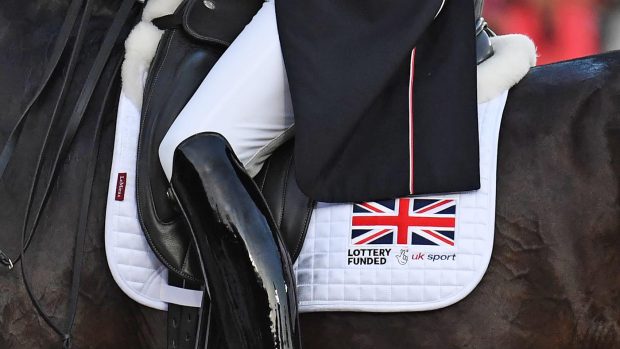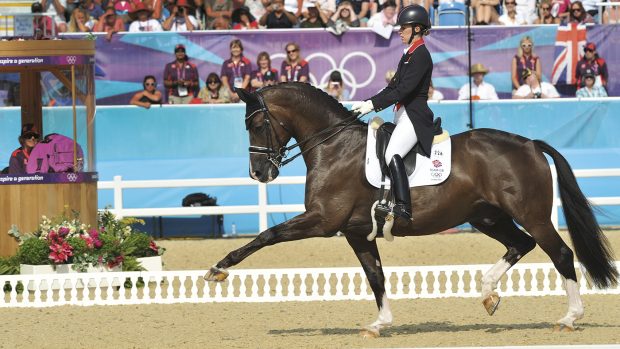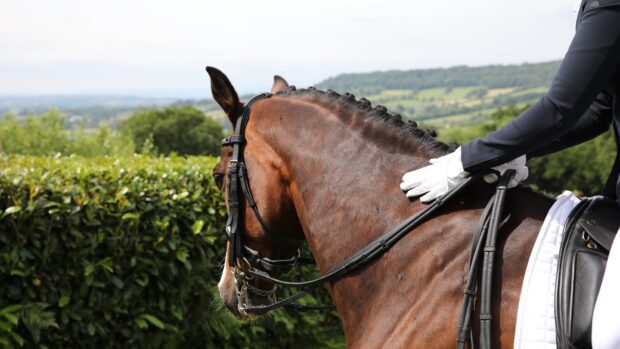Riders should apply the principles learned in relation to Covid to protect against the spread of equine herpes virus (EHV) during the current European outbreak – but the risk in the UK is only “mildly increased” from normal.
As competition gets under way in Scotland this weekend, and in England from 29 March, British Equestrian (BEF) is working with the Equine Infectious Diseases Action Group (EIDAG) and BEF member bodies to help mitigate the spread of EHV from Europe.
A BEF spokesman said in a further step to minimise any spread of EHV, the EIDAG also recommends the implementation of a new self-certification process for riders to declare that their horses are healthy and have not been in contact with any others showing signs of infectious disease.
“Member bodies who agree to implement self-certification will work with their organisers and venues on a system to make the declaration before the horse arrives at the venue. Competitors should follow the information on each competition schedule on how to submit their information. This process will be in place for 29 March to 12 April but could stay in place should the risk level dictate,” he said.
British Dressage and British Showjumping (BS) have confirmed they will use the self-certification process. BS said the form needs to be with the event organiser 24 hours before arrival and should a horse arrive at the venue without the form having been submitted, their entry will need to be forfeited and the horse should not be allowed on to the venue grounds.
The EIDAG is advising that all BEF member bodies restrict activities to “stay local” until at least 12 April, meaning no overnight stays or stabling. This is in line with current Government advice around Covid in England.
“There are a small number of elite training and competitions which require overnight stays currently scheduled. These gatherings will have enhanced biosecurity and protocols in place which have been prepared by the BEF director of equine sports science and medicine, John McEwen,“ said the BEF spokesman.
The BEF spokesman reminded riders that EHV circulates in the UK “constantly”.
“It commonly causes mild fever and respiratory signs and occasionally it leads to neurological signs, abortion and neonatal illness. There are an increased number of reports of EHV from a number of European countries suggesting that currently, there is a mildly increased risk of EHV infection in the UK over and above the usual ever-present threat,” he said.
“In response to reports of more serious disease centring on elite events in the Iberian Peninsula, showjumpers, eventers and dressage horses returning to the UK from these areas have been identified and traced. Strict quarantine is being imposed on their return with comprehensive protocols in place for biosecurity and testing.”
Celia Marr, EIDAG chairman, said it is essential that if any of the horses that have returned to the UK are infected, we do not allow the virus to escape into the general horse population.
“Fortunately, quarantine is an effective way to control EHV because it requires close horse-to-horse contact to spread,” she said. “We are confident that BEF’s track, isolate, and test protocols are well under way with the disciplines and are doing their job effectively.”
Philip Ivens, a specialist in equine internal medicine and member of EIDAG and its emergency response group said riders should “always bear in mind” that events, training camps and competitions are occasions where infectious disease can spread.
“Making sure you stop your horse from making direct contact with others, using your own equipment and monitoring your horse for fever or other signs of infectious disease when you return home are sensible ways to reduce risk,” he said.
Article continued below…

Should I vaccinate my horse against EHV right now? H&H finds out…
Following concerns raised on social media, H&H sought guidance from the British Equine Veterinary Association on whether owners should be

EHV-1 update: five more horses dead and positive tests linked to third Spanish tour
The FEI has blocked hundreds more horses in the database, including dressage horses, in the latest update

Subscribe to Horse & Hound magazine today – and enjoy unlimited website access all year round
“Riders should not be more concerned about EHV at the moment – it is easy to forget that risk of infectious diseases such as EHV and strangles is always with us and not let our vigilance drop.”
“We’ve all learned the importance of protecting each other during the Covid-19 pandemic – now we need to apply the same principles of creating space and diligent hygiene to protect everyone’s horses,” added Professor Marr.
In an FEI update today (19 March) the organisation said it was following up on a reported EHV-1 positive in a horse that was tested at its home stable in Scotland after returning from Vilamoura, Portugal. The FEI said neither the positive horse or any of its stable companions that had travelled back from Portugal are showing clinical signs and they have been isolated since their return.
Horse & Hound magazine, out every Thursday, is packed with all the latest news and reports, as well as interviews, specials, nostalgia, vet and training advice. Find how you can enjoy the magazine delivered to your door every week, plus options to upgrade to access our H&H Plus online service which brings you breaking news as it happens as well as other benefits.




